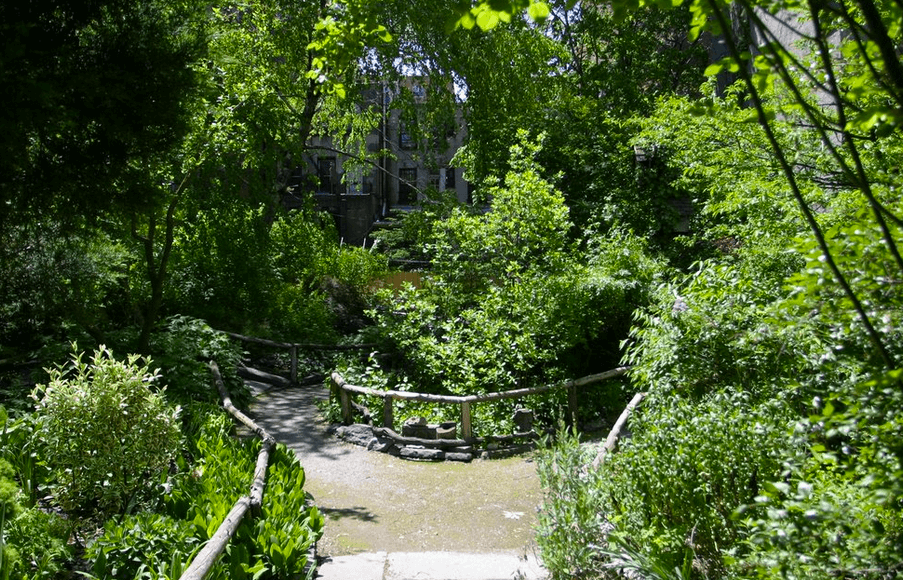Is Nothing Safe?: Toxic Levels of Lead and Arsenic Found In Brooklyn Community Gardens


It’s a jungle out there. A lead- and arsenic-infused jungle.
Over the weekend, we read Lizzie Widdicombe’s article in the New Yorker, “The End of Food,” about the latest food fad: Soylent. Developed by three San Francisco tech guys (because life hacks), Soylent is a drink that’s a combination of the “thirty-five nutrients required for survival,” and it most closely resembles “gooey lemonade” or “grandpa’s Metamucil.” The appeal of Soylent rests in the fact that it exists outside the food pyramid and is therefore not dependent on the problems therein, namely, how difficult it is for most people to actually consume an affordable, balanced diet. On the other hand, if you rely on Soylent for your nutritious needs, you’ll then only be able to drink it, thereby depriving yourself of all the delicious offerings that the earth (and, like, Seamless) provides. But then, on the other other hand, Brooklyn’s community gardens have been revealed to contain cancer-causing levels of toxins like lead and arsenic, meaning that if you eat to many of the herbs and vegetables growing out of your local plot, you could die. So! Get ready to enjoy some Soylent?
Via the New York Post, new data reveals that “vegetables grown at the Sterling Community Group Garden in Crown Heights” could be dangerous to consume due to the fact that the soil in that garden contains “three times the acceptable level of lead and six times the federal safety threshold for arsenic.” And it’s not just that garden. The Post reports, “Scientists found lead levels above federal guidelines at 24 of 54 city gardens, or 44 percent of the total. And overall, they found toxic soil at 38 gardens—70 percent of the total.” And the danger doesn’t just come from eating vegetables growing in that soil, anyone working or playing in the area is at risk from exposure to the dirt.
The city says that all the soil in the contaminated gardens has since been replaced, but this situation only serves as a reminder of all the dangers inherent with eating food today—even food which seems like it would be safe, such as that grown in a community garden. There’s constant news of rice being tainted by arsenic, and how limes might be an endangered species, and the huge number of pesticides found on apples, nectarines, potatoes, et al. It can feel like nothing’s safe, like we might be slowly poisoning ourselves even as we try to eat more nutritiously than ever before. At the very least, it’s an unsettling paradox, and one that goes far beyond the contaminated soil of local gardens. We’re not quite ready to abandon food for Soylent yet, but the small, apocalyptically minded part of our brains wonders if, someday, relying on something like Soylent will be inevitable. Bottoms up!
Follow Kristin Iversen on twitter @kmiversen
You might also like 




















